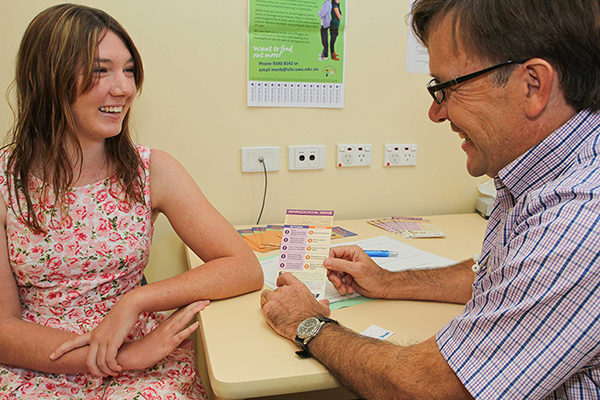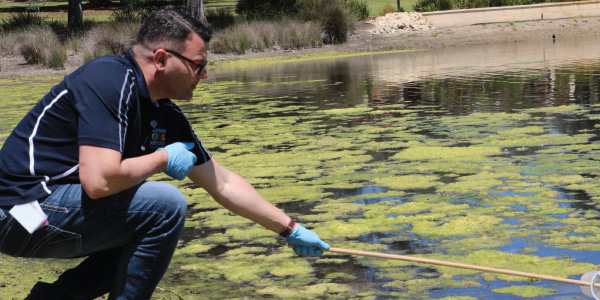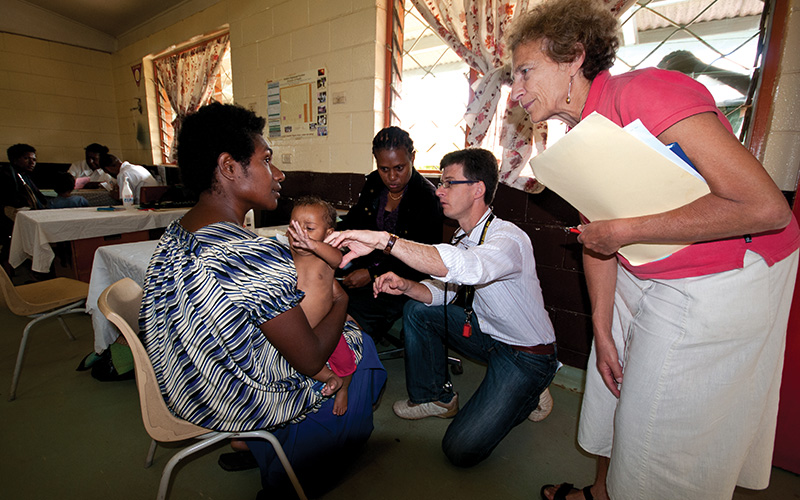Search
Research
Maternal prenatal stress exposure and sex-specific risk of severe infection in offspringMaternal stressful life events during pregnancy have been associated with immune dysregulation and increased risk for asthma and atopy in offspring. Few studies have investigated whether prenatal stress is associated with increased overall or specific infectious diseases in childhood, nor explored sex differences. We sought to examine the relationship between the nature and timing of maternal stress in pregnancy and hospitalisation with infection in offspring.
Research
ACE2 expression is elevated in airway epithelial cells from older and male healthy individuals but reduced in asthmaCOVID-19 is complicated by acute lung injury, and death in some individuals. It is caused by SARS-CoV-2 that requires the ACE2 receptor and serine proteases to enter AEC. We determined what factors are associated with ACE2 expression particularly in patients with asthma and COPD. We obtained lower AEC from 145 people from two independent cohorts, aged 2-89 years, Newcastle (n = 115) and Perth (n = 30), Australia. The Newcastle cohort was enriched with people with asthma (n = 37) and COPD (n = 38). Gene expression for ACE2 and other genes potentially associated with SARS-CoV-2 cell entry was assessed by qPCR, and protein expression was confirmed with immunohistochemistry on endobronchial biopsies and cultured AEC.
Research
Healing Anthropocene Syndrome: Planetary Health Requires Remediation of the Toxic Post-Truth EnvironmentThe term “Anthropocene Syndrome” describes the wicked interrelated challenges of our time. We expand the discourse on positive social contagion and argue that empowerment through education can help lead to an information transformation with the aim of flourishing along every link in the person, place and planet continuum.
Research
The impact of maternal prenatal mental health disorders on stillbirth and infant mortality: a systematic review and meta-analysisEvidence about the association between maternal mental health disorders and stillbirth and infant mortality is limited and conflicting. We aimed to examine whether maternal prenatal mental health disorders are associated with stillbirth and/or infant mortality. MEDLINE, Embase, PsycINFO, and Scopus were searched for studies examining the association of any maternal prenatal (occurring before or during pregnancy) mental health disorder(s) and stillbirth or infant mortality. A random-effects meta-analysis was used to calculate pooled odds ratios (ORs) with 95% confidence intervals (CIs). The between-study heterogeneity was quantified using the I2 statistic. Subgroup analyses were performed to identify the source of heterogeneity.
Research
The Fifth International Neonatal and Maternal Immunization Symposium (INMIS 2019): Securing Protection for the Next GenerationDespite significant progress in reaching some milestones of the United Nations Sustainable Development Goals, neonatal and early infant morbidity and mortality remain high, and maternal health remains suboptimal in many countries. Novel and improved preventative strategies with the potential to benefit pregnant women and their infants are needed, with maternal and neonatal immunization representing effective approaches.

Research
Meningococcal DiseaseMeningococcal disease is caused by the bacteria Neisseria meningitidis, or 'meningococcus'. It is an uncommon but very serious disease that can result in death if not recognised and treated quickly.
Research
Type 1 DiabetesA lifelong auto-immune condition that can affect anyone, but is most commonly diagnosed in childhood.

Australia’s first national guideline for supporting the learning, participation and wellbeing of autistic children and their families.

Cystic fibrosis (CF) researchers are working hard to progress phage therapy as an alternative treatment to antibiotics in people with CF who develop life-threatening lung infections.

New research has revealed the extraordinary impact of a collaborative project between The Kids Research Institute Australia and the Papua New Guinea Institute of Medical Research, with rates of hospitalisation for pneumonia dropping by nearly 60 per cent thanks to the introduction of the pneumococcal vaccine
